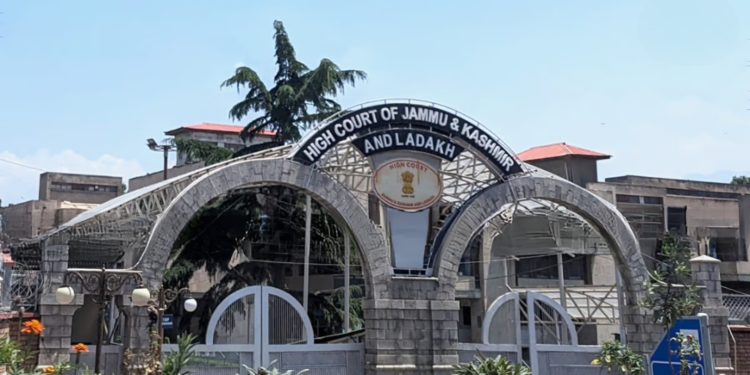The High Court of Jammu and Kashmir and Ladakh recently ruled that even arguments made by lawyers before a court can serve as the basis for initiating a criminal defamation case if those arguments are inherently defamatory [Satya Prakash Arya v. Syed Abid Jalali].
Justice Sanjay Dhar clarified that such arguments or pleadings in court amount to “publication,” a necessary element for criminal defamation under Section 499 of the Ranbir Penal Code (RPC).
“The law is well settled that when pleadings containing defamatory material are presented before a court of law, it amounts to publication within the meaning of Section 499 of RPC … Taking a cue from this, it can safely be stated that even the arguments made by a counsel upon instructions from his client, which are per se defamatory in nature, can form the basis for prosecuting such client for the offence under Section 499 of RPC,” the Court’s July 20 ruling stated.
The High Court made this observation while addressing a petition challenging the initiation of a defamation case pending before a trial court in Srinagar.
The defamation case was linked to a complaint filed by the petitioner against a Kashmir-based businessman (respondent) in 2013. The petitioner, a businessman from Jaipur, had accused the respondent of taking jewelry without payment and having militant connections, which led to the respondent’s arrest.
The respondent sought bail first in a trial court in Jaipur and later in the Rajasthan High Court. The petitioner opposed these bail applications, alleging that the respondent had ties to the banned terror group Hizbul Mujahideen.
The Rajasthan High Court referred the matter to the National Investigation Agency (NIA), which in May 2016 concluded that the respondent had no links with Hizbul Mujahideen. Subsequently, the Rajasthan High Court granted bail to the respondent after he had spent about six months in jail.
The respondent then filed a defamation case against the petitioner, arguing that the baseless allegations had led to his illegal detention, loss of business, and damage to his reputation. The petitioner contended that the defamation case was invalid for two reasons: first, that the allegations of “militant” connections were made by the petitioner’s lawyer without his advice or consent, and second, that the allegations were made in courts in Jaipur, Rajasthan, not Jammu and Kashmir. Therefore, he argued that the trial court in Srinagar lacked territorial jurisdiction.
The High Court rejected the first contention, noting that it is established law that defamatory arguments and pleadings in court constitute “publication.”
“Therefore, the contention of the learned Senior Counsel appearing for the petitioner that the submissions made by the counsel for the petitioner during the course of arguments on the bail application of the respondent before the Court at Jaipur cannot form the basis for prosecution of the petitioner for the offence under Section 499 of RPC is not tenable,” the Court stated.
However, the High Court agreed with the petitioner that the defamation case could not be tried in Srinagar since the alleged offence occurred in Jaipur, Rajasthan.
“The petitioner is a resident of Rajasthan and he is alleged to have committed the offence of criminal defamation beyond the limits of the erstwhile State of Jammu and Kashmir; as such, he cannot be prosecuted at Srinagar in the instant case,” the High Court said, allowing the plea.
Senior advocate ZA Qureshi, with advocate Agha Faisal Ali, represented the petitioner.

















